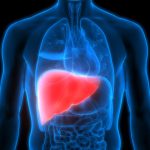University of Pittsburgh neurobiologist Dr. Peter Strick has received the American Psychosomatic Society’s 2018 Paul D. MacLean Award for Outstanding Neuroscience Research in Psychosomatic Medicine.
Strick, scientific director of Pitt’s Brain Institute and chair of Pitt’s Department of Neurobiology, recently accepted the award at the society’s 76th annual meeting, held in Louisville, Kentucky. He was chosen because of recent “groundbreaking contributions to the neuroscience of mind-body relationships,” said Dr. Tor Wagner, the neuroscientist at the University of Colorado who nominated him.
“For the first time, [Strick’s team] detailed brain pathways that connect higher cortical centers directly to organs responsible for physiological stress responses,” Wagner said. “These pathways interact with inflammation and immunity, providing a biological substrate that connects intentions and beliefs to physical health.”
“It is an honor to have this work recognized by such a prominent organization,” Strick said. “I have been studying the brain for decades, and still I was a little surprised – and fascinated – to find a biologic basis for the notion that yoga, Pilates and mindful meditation can relieve stress.”
In an August 2016 study published in the Proceedings of the National Academy of Sciences, lead investigator Dr. Richard Dum, research assistant professor of neurobiology; Dr. David Levinthal, assistant professor of gastroenterology, hepatology and nutrition; and Strick used techniques the latter pioneered to map the connections between the brain and the adrenal medulla, part of a gland that sits atop the kidneys and produces adrenaline, the fight-or-flight hormone. The findings were highlighted in The Atlantic.








